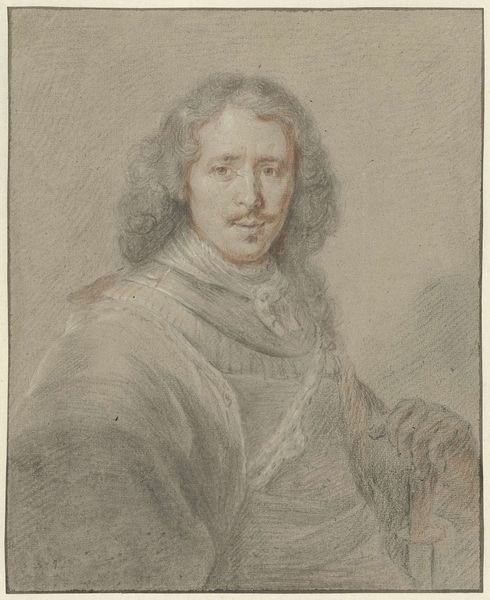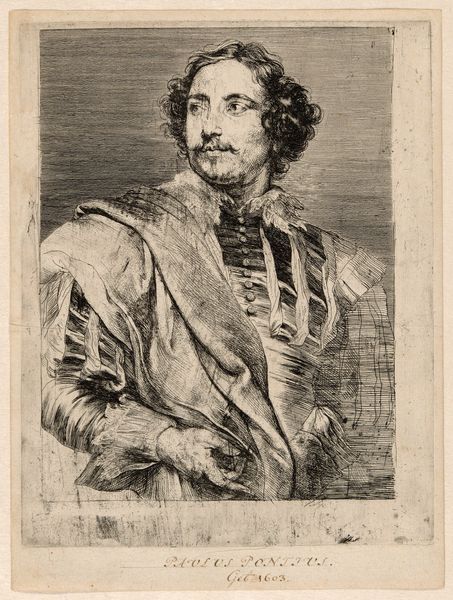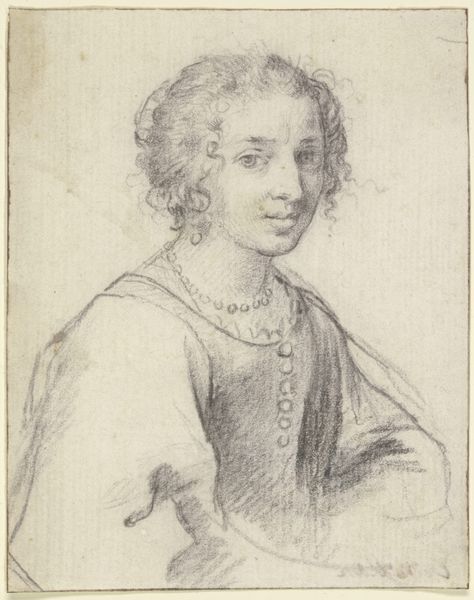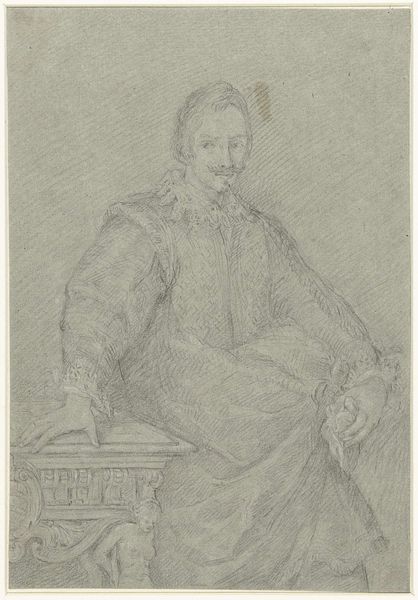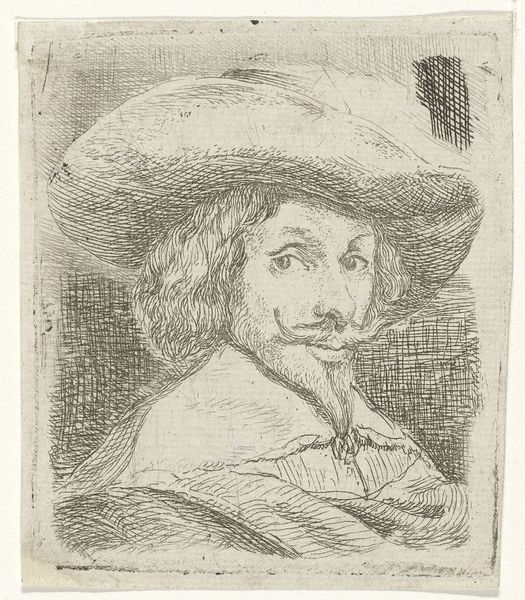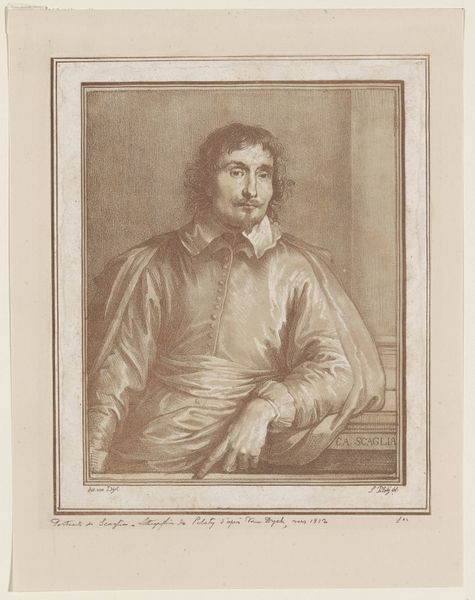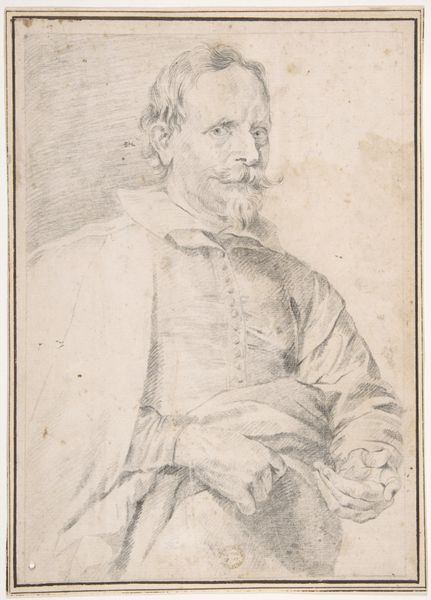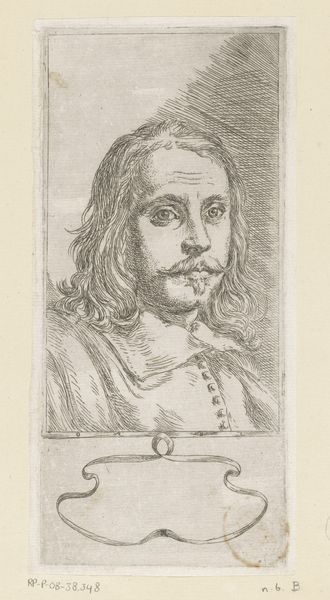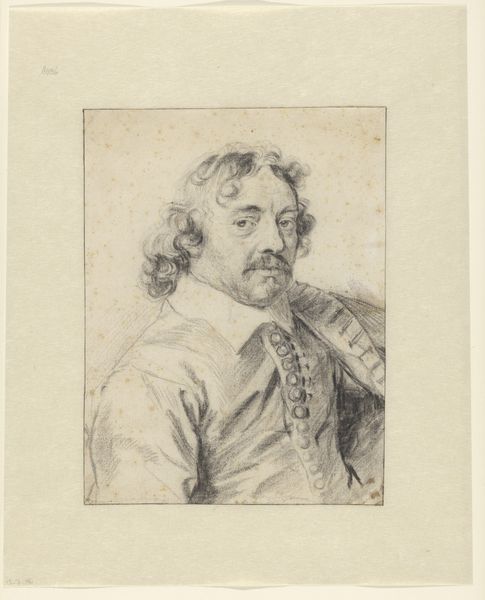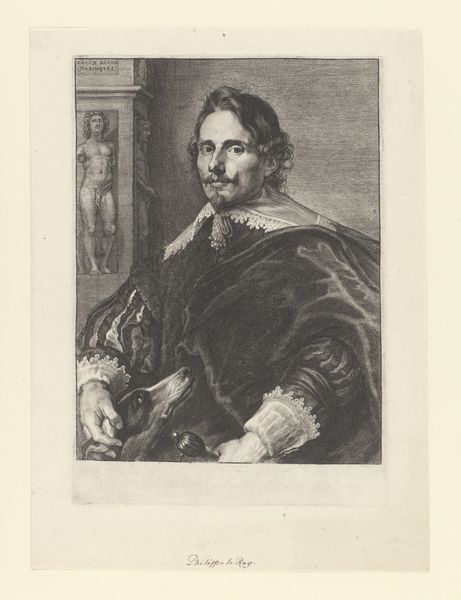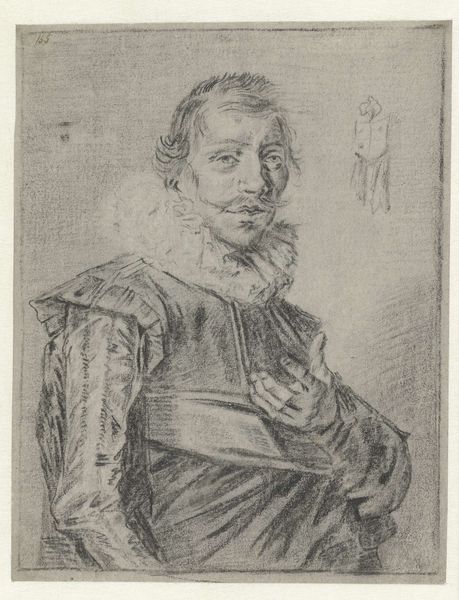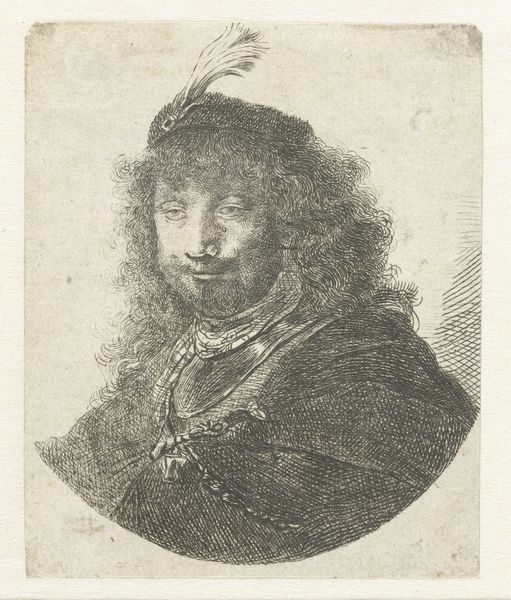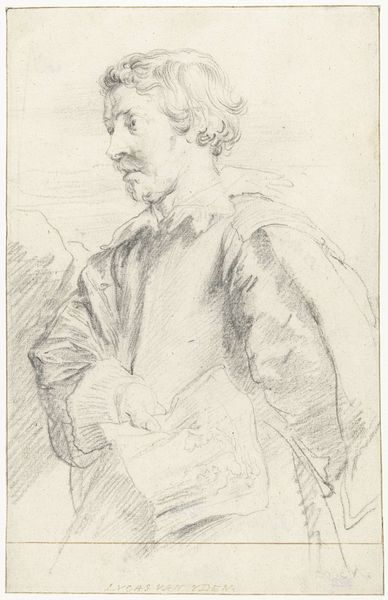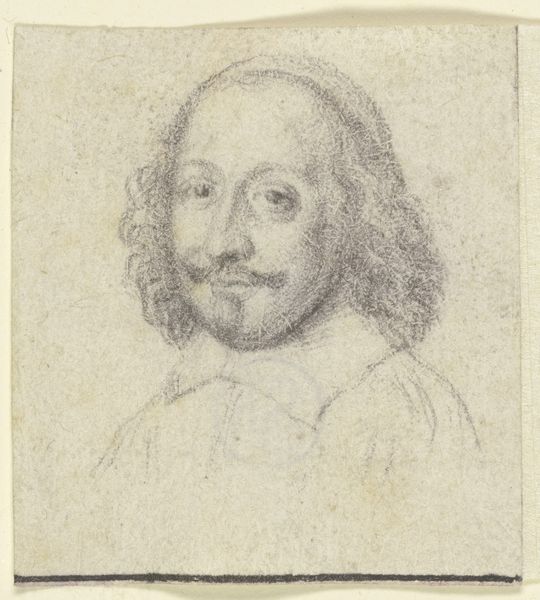
drawing, charcoal
#
portrait
#
drawing
#
baroque
#
charcoal drawing
#
charcoal
Dimensions: height 277 mm, width 223 mm
Copyright: Rijks Museum: Open Domain
This is a self-portrait by Bartholomeus Breenbergh, created sometime between 1618 and 1657, rendered in pen and brown ink with brush and gray wash. Breenbergh lived during the Dutch Golden Age, a period marked by tremendous economic prosperity and cultural flourishing in the Netherlands. What's immediately striking is Breenbergh's direct gaze, his confident posture. We get a strong sense of his identity as an artist. His dress and demeanor reflect the rising status of artists in Dutch society. Traditionally, artists were seen as craftsmen, but the economic boom and the rise of a wealthy merchant class created a demand for art, elevating artists' social standing. Breenbergh holds not a sword or symbol of wealth, but a set of brushes, his tools of trade. His pointing could be interpreted as an intellectual gesture, symbolic of his engagement with the world through his art. Ultimately, this self-portrait serves as both a personal statement and a reflection of the changing social landscape in which artists began to assert their intellectual and creative value.
Comments
No comments
Be the first to comment and join the conversation on the ultimate creative platform.
